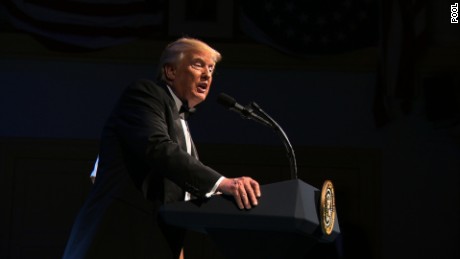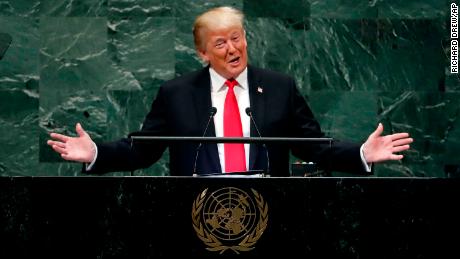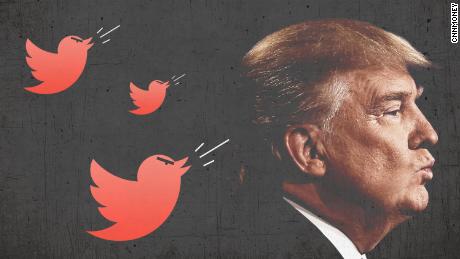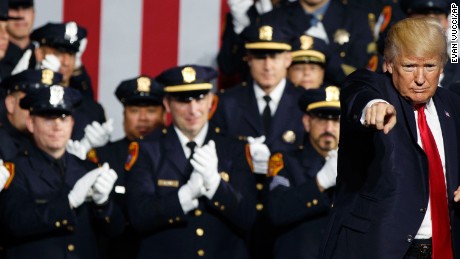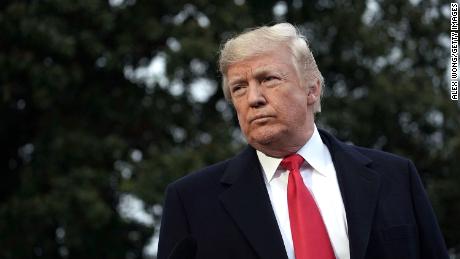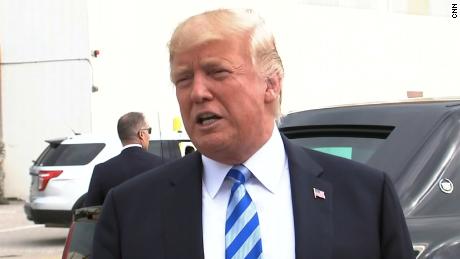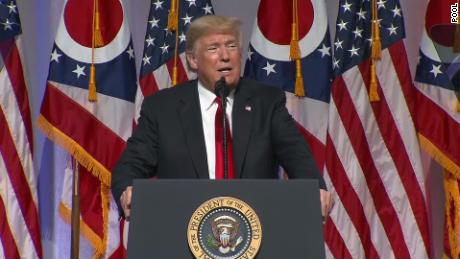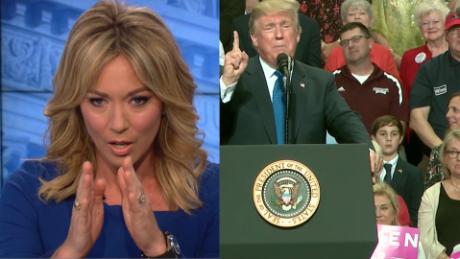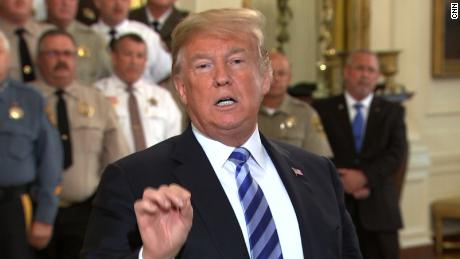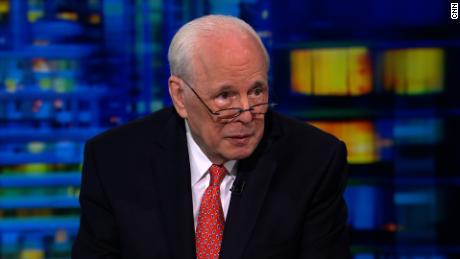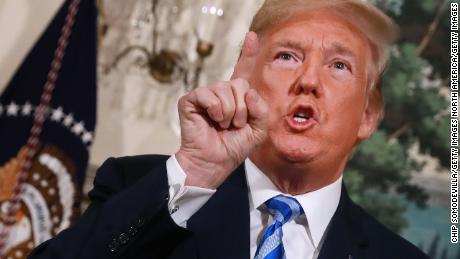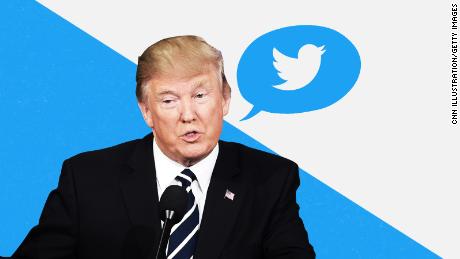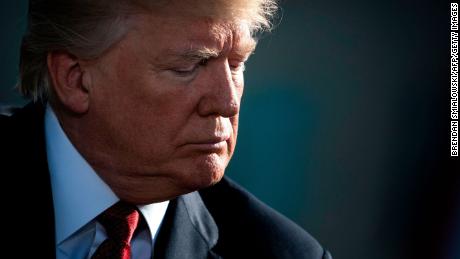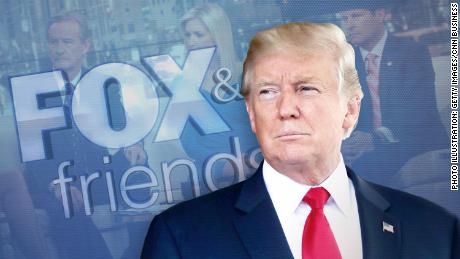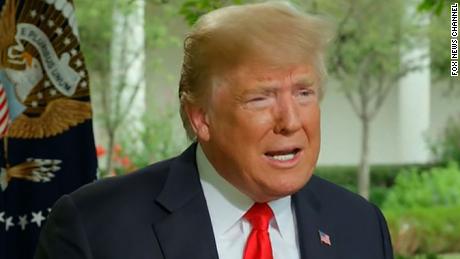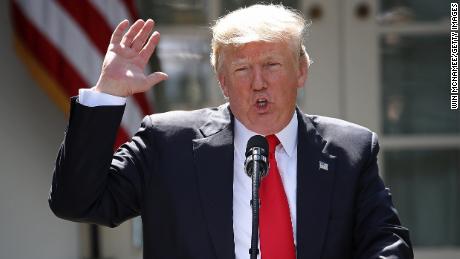Story highlights
- Where Trump's numbers do stand out is compared to his presidential predecessors
- Trump's poll numbers could have a hugely negative impact on his party's chances in the 2018 midterms
Washington (CNN)On March 11, 45% of Americans approved of the job Donald Trump was doing in Gallup's daily tracking poll. It's been all downhill since then.
In the intervening 86 days, Trump's job approval has never again reached 45% in Gallup's data. In fact, the last time Trump was even at 43% was on April 28. He's spent most of the time between then and now mired in the low 40s and high 30s.
And now, Trump finds himself in the midst of his worst extended poll run of his presidency. Starting on May 28 when Gallup put his job approval at 42%, Trump has been sliding downward. The latest Gallup track on June 3 put Trump's job approval at a dismal 36% -- a single percentage point away from the lowest ebb of his time in the White House. (On March 28, Trump's job approval was at 35%.)
The Gallup numbers are no anomaly. A Quinnipiac University poll released in late May put Trump's job approval at 37%. A Monmouth poll conducted in mid-May put Trump's job approval at 39%.
Where Trump's numbers do stand out is compared to his presidential predecessors. President Obama was at 61% in the Gallup tracking poll in early June 2009. George W. Bush was at 55% in Gallup at this time in 2001. The only modern president who comes close to Trump's poor poll standing is Bill Clinton, who was at 37% approval in early June 1993. (Clinton's numbers had tanked in the wake of his firing of seven employees in the White House travel office in mid-May, a controversy that came to be known as "Travel-gate.")
What makes Trump's polling struggles all the more remarkable is the fact that he spent most of the 2016 presidential campaign talking about just how good his poll numbers were. To Trump, his poll numbers were everything. Polls showed him winning so he must be doing something right because, wait for it, he was winning. It was the ultimate self-fulfilling and self-justifying prophesy for Trump.
For as much as Trump talked about polls during the 2016 campaign, he's been nearly silent about his numbers as president. According to the absolutely indispensable Trump Twitter Tracker -- a searchable archive of all of Trump's tweets -- he's only sent seven tweets about polls since he was inaugurated on January 20.
The vast majority of those tweets have been to run down polls where his numbers aren't good. His most recent? A tweet on April 24: "The two fake news polls released yesterday, ABC & NBC, while containing some very positive info, were totally wrong in General E. Watch!," it read.
Trump's poll numbers -- if they stay anywhere near as low as they currently are -- could have a hugely negative impact on his party's chances in the 2018 midterms elections. Since 1946, according to Gallup, when a president's job approval rating is above 50%, the average number of seats his party loses in a midterm election is 14. When a president's job approval rating is below 50%? Try an average 36-seat loss.
If history holds, Democrats would likely take back control of the House in 2018 -- given that they only need a 24-seat gain to do so. (One factor working against Democrats: The House is pretty well sorted out on partisan lines. Only 23 House Republicans currently represent districts Hillary Clinton carried last November.)
A Democratic-controlled House would be a nightmare for Trump as he tried to begin preparing for his re-election bid in 2020. Not only would he struggle to move his main agenda items through a divided Congress but a Democratic majority would almost certainly aggressively pursue its oversight responsibilities on the Trump administration.
The best (only?) thing going for Trump -- and Republicans -- in terms of the polling is that it's June 2017, not June 2018. There's still time for Trump to move his numbers up. But, the last few months suggest that much of the public has made up its mind on how the president is handling his business -- and Trump has been found wanting.


